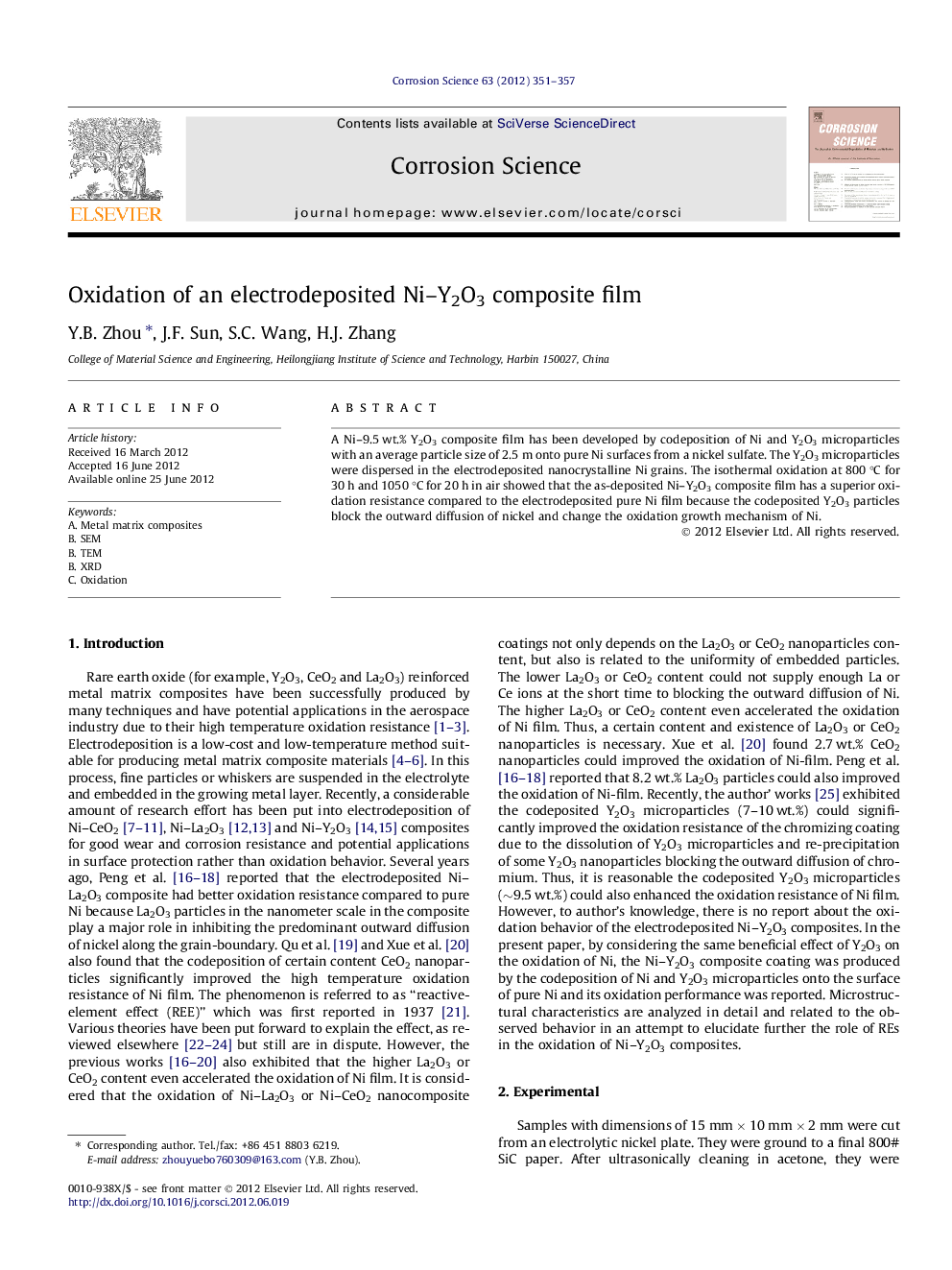| Article ID | Journal | Published Year | Pages | File Type |
|---|---|---|---|---|
| 1469450 | Corrosion Science | 2012 | 7 Pages |
A Ni–9.5 wt.% Y2O3 composite film has been developed by codeposition of Ni and Y2O3 microparticles with an average particle size of 2.5 m onto pure Ni surfaces from a nickel sulfate. The Y2O3 microparticles were dispersed in the electrodeposited nanocrystalline Ni grains. The isothermal oxidation at 800 °C for 30 h and 1050 °C for 20 h in air showed that the as-deposited Ni–Y2O3 composite film has a superior oxidation resistance compared to the electrodeposited pure Ni film because the codeposited Y2O3 particles block the outward diffusion of nickel and change the oxidation growth mechanism of Ni.
► Ni–9.5 wt.% Y2O3 composite was developed by co-electrodeposition of Ni and Y2O3 microparticles. ► Ni–9.5 wt.% Y2O3 composite exhibited a superior oxidation resistance compared with Ni film. ► Y2O3 particles blocked the outward diffusion of Ni, changed the oxidation growth mechanism of Ni. ► The effect of Y on blocking the outward diffusion of Ni decreased with the increasing temperature.
